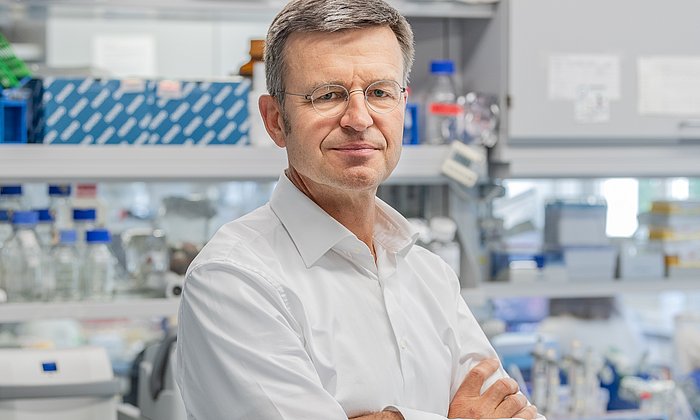Survey: 35 percent report weight gain since the beginning of the Corona pandemic
Psychological strain and eating habits in the pandemic

TUM's Else Kröner-Fresenius Center for Nutritional Medicine (EKFZ) joined forces with the opinion research institute Forsa to survey 1,005 persons in Germany between the ages of 18 and 70 chosen according to a systematic random process.
The scientists' primary focus is on the psyche: What is the connection between dietary habits and psychological conditions? During the past year 42 percent of those surveyed experienced some psychological stress due to the changes resulting from the Corona situation, while 20 percent experienced strong psychological stress for the same reason.
Increase in illnesses related to weight and lifestyle feared
"Unfortunately, during the Corona pandemic many people didn't succeed in keeping their weight under control," says Professor Hauner. He fears a resulting increase in weight-related and lifestyle-related illnesses in the years to come. "We have to expect a rise in the incidence of type 2 diabetes in the near future."
As a short-term countermeasure, Hauner recommends that people be informed of these connections and be offered concrete assistance when desired. "Many people with weight problems need outside help. Health policy could initiate campaigns aimed at motivating and supporting people."
15 percent of those surveyed lost weight
15 percent of the individuals surveyed have reduced their weight during the same period – on average by 7.9 kilograms. "This is consonant with the results of other studies," comments Prof. Martina de Zwaan, head of the Clinic for Psychosomatics and Psychotherapy at the Hannover Medical School (MHH). "This can be an indication of a healthier lifestyle: Life has been less hectic, people had more time to cook their own food and pay more attention to healthier nutrition."
One noteworthy result is that a significant portion (19 percent) of young adults between the ages of 18 and 29 lost weight, as did many survey participants (18 percent) with a Body Mass Index of less than 20. "There are also studies which clearly show a rise in eating disorders during the pandemic," says de Zwaan. This is attributed to reduced opportunities for participating in sports, loss of familiar and reassuring structures, social isolation, general insecurity, an increase in depression and psychological stress, and is also linked to a possible increase in the use of social media, which often confront users with pursuit of thinness and stigmatization of weight.
Because of the different behavioral patterns in the Corona pandemic, both experts additionally recommend better education on the topic together with individual solutions in the form of nutritional counseling.
The study was financed by the Else Kröner-Fresenius-Stiftung, a non-profit foundation dedicated to the funding and advancement of medical research and the support of humanitarian projects. To date the foundation has funded around 2,300 projects. With an annual funding volume currently amounting to over 60 million euros it is the largest foundation in Germany that actively funds and supports medicine. www.ekfs.de
The Else Kröner Fresenius Center for Nutritional Medicine (EKFZ) at TUM is an internationally renowned research institution in the field of nutritional medicine. The center consists of the Chair of Nutritional Medicine, the Chair of Molecular Nutritional Medicine and the Professorship of Pediatric Nutritional Medicine. The interdisciplinary team uses know-how from medicine, nutrition, sports and health sciences for research and teaching and is also strongly involved in public health. www.ekfz.tum.de
Technical University of Munich
Corporate Communications Center
- Dr. Katharina Baumeister
- katharina.baumeister@tum.de
- presse@tum.de
- Teamwebsite
Contacts to this article:
Professor Hans Hauner
Technical University of Munich
Professorship for Nutritional Medicine
hans.hauner(at)tum.de
![[Translate to en:] TUM-Präsident Prof. Thomas F. Hofmann (links) und Stiftungsratsvorsitzender Dr. Dieter Schenk, Else Kröner-Fresenius-Stiftung. [Translate to en:] TUM-Präsident Prof. Thomas F. Hofmann (links) und Stiftungsratsvorsitzender Dr. Dieter Schenk, Else Kröner-Fresenius-Stiftung.](/fileadmin/_processed_/2/c/csm_220602_Foerderverlaengerung_EKFZ_88251d6d02.jpg)




